We wake up to fog pouring through the bunk room window like a smoke machine at a disco. After the usual ‘half pension’ hut breakfast of cold-cuts, bread and jam, we check the weather report to make sure we don’t miss an opportunity to climb one more peak. Yes, we are optimists.
Weiss Kugel is nearby. At 3,739 meters, it is one of the highest peaks in the area, and would be the grand finale to our hut trip. Since weather forecasts are not always accurate, Ted seeks the final word from the charming chalet girl, herself an accomplished mountaineer. Ted asks if the day might be good for attempting the climb. She gives him a kind smile and replies graciously, “There will be better days.” Ted gets her phone number instead (clever fellow), and we agree to follow her suggestion of skiing down the groomed cat track to the village below.
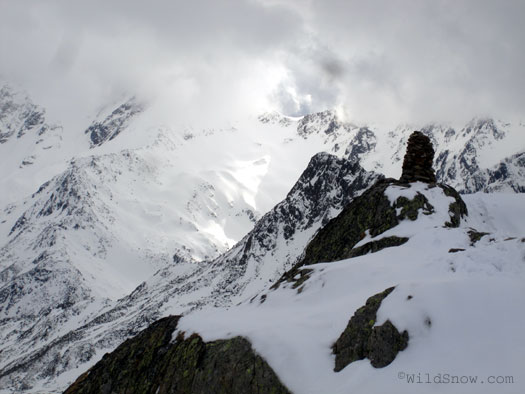
Quite early in the morning the sun peaks through, a hint of the magnificent mountains that surround us. Clouds thicken and fog rolls in. We will need to return on another trip to experience the views that have made the Schone Aussicht (Bella Vista) hut famous.
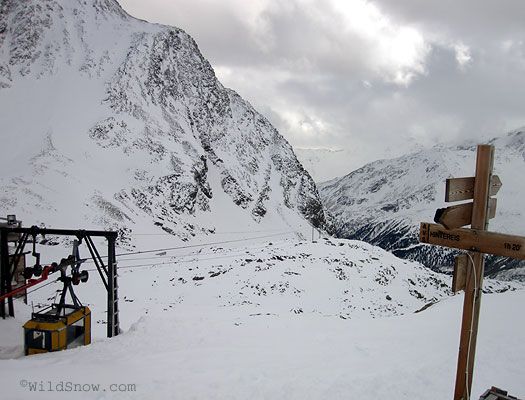
Because of the dismal weather, most choose to ride the gondola down. We opt for our planks and ski carefully down a groomed cat track to the village below.
In Europe, even a groomed cat track can be extreme when it’s an ice sheet. The light is flat and the fog so thick I can barely hear the chattering scrape of Lou and Ted’s skis as they zigzag down the steep path ahead of me. At one point I swing close to the edge and glimpse a sheer drop off of jagged rocks plunging into nothingness. I catch my breath, tighten my turns, and hurry to follow my shadowy partners.
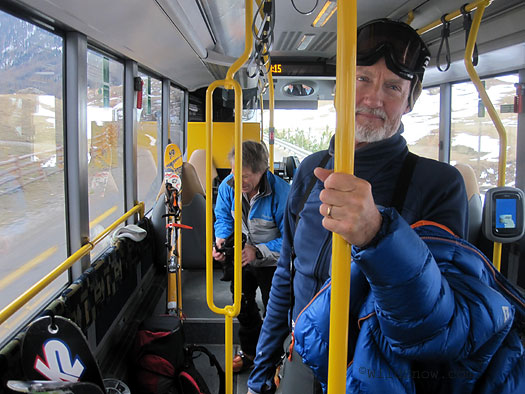
Within minutes of skiing down to Kurzras, we catch a bus to the train station in Naturno.
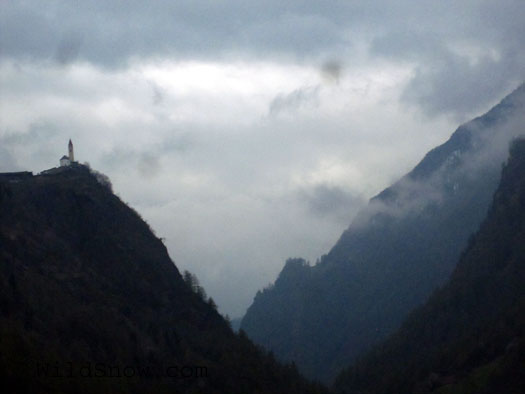
The mountains are beautiful on this misty day. Chapels with high steeples mark many alpine villages.
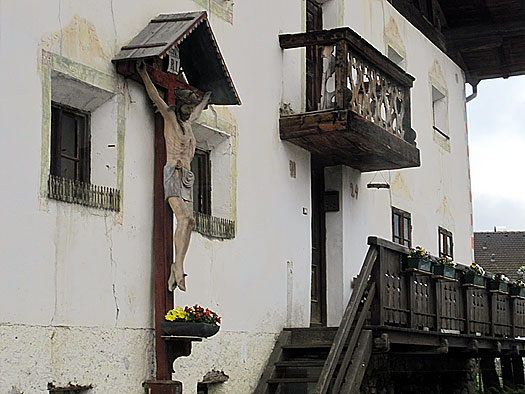
Next to the steeple in Katharinaberghof, a crucifix on an old barn house.
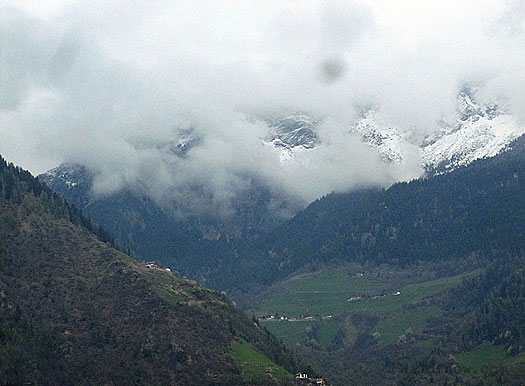
As we get below the clouds, lovely pastures come into view.
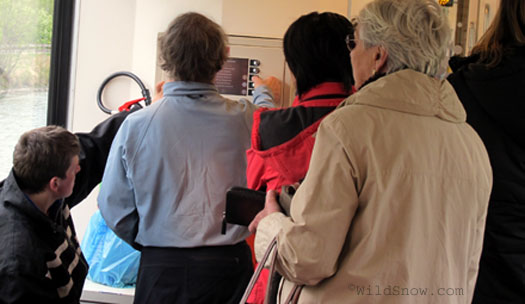
The self-serve ticket dispenser on the train was confusing. Locals help Ted buy tickets to Innsbruck. Adventure travel at its best, no guide and an audience of locals.
As we relax in the rail car, we pass through the scenic Etsch River valley towards the Brenner Pass. South Tirol has a mild Mediterranean climate, and the valleys are filled with vineyards and orchards. Centuries ago, the Roman conquest brought apples to South Tirol. In the Middle Ages, apples were a crop of monasteries and they preserved the varieties of apple and knowledge of fruit-growing. In the late 1800’s, farmers drained water from the bottom of the valley by controlling the River Etsch, and cultivated the land. Today the area is the largest apple producing region in Europe. Now we know who to thank for Lou’s beloved apple strudel.
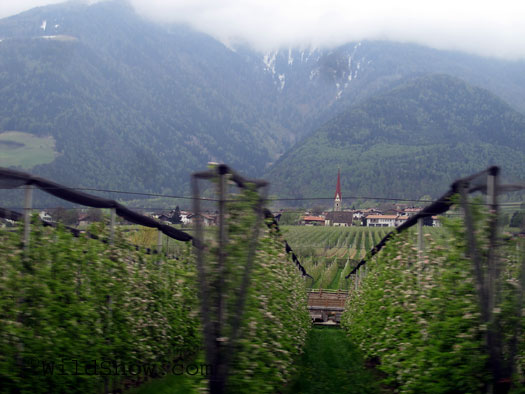
At first we thought these were vineyards. Later we discovered they are apple orchards.
At Bolzano we switch trains and mistakenly get on the express. Even though we have to buy new tickets, it is a bargain at 32 euros to speed back to Innsbruck in only two hours. We save time by avoiding stops at numerous local villages, and the border crossing at the Brenner Pass goes smoothly. In the past, it could take hours. Not only were passports inspected by border patrol in the old days, but train engines had to be changed. Two companies operated different electrical systems, (15,000 V AC at 16.7 Hz in Austria, and 3,000 V DC in Italy), which required a lengthy stop at the border to change the electric locomotives.
In recent years diesel trains, and the introduction of multicurrent rolling stock that runs on both the Austrian and Italian networks eliminated the need for locomotive changes. Our wait at the border is brief while the border police walk quickly through the cabins. We avoid interrogation by ordering another strudel.
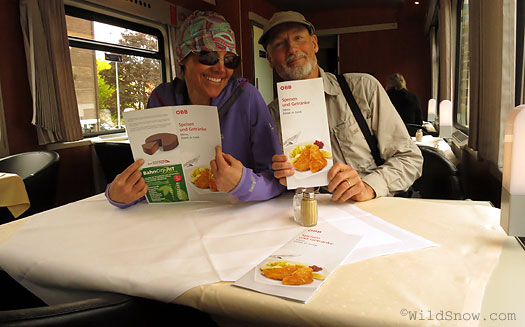
The train was crowded so we headed to the dining car. We found a spacious cabin, linen covered tables, and a friendly waiter eager to take our order.
WildSnow Girl, Lisa Dawson, is the luckiest girl in the world. Also known as Mrs. WildSnow.com, she tests whatever gear she wants. She gives the WildSnow family of websites the feminine voice.
